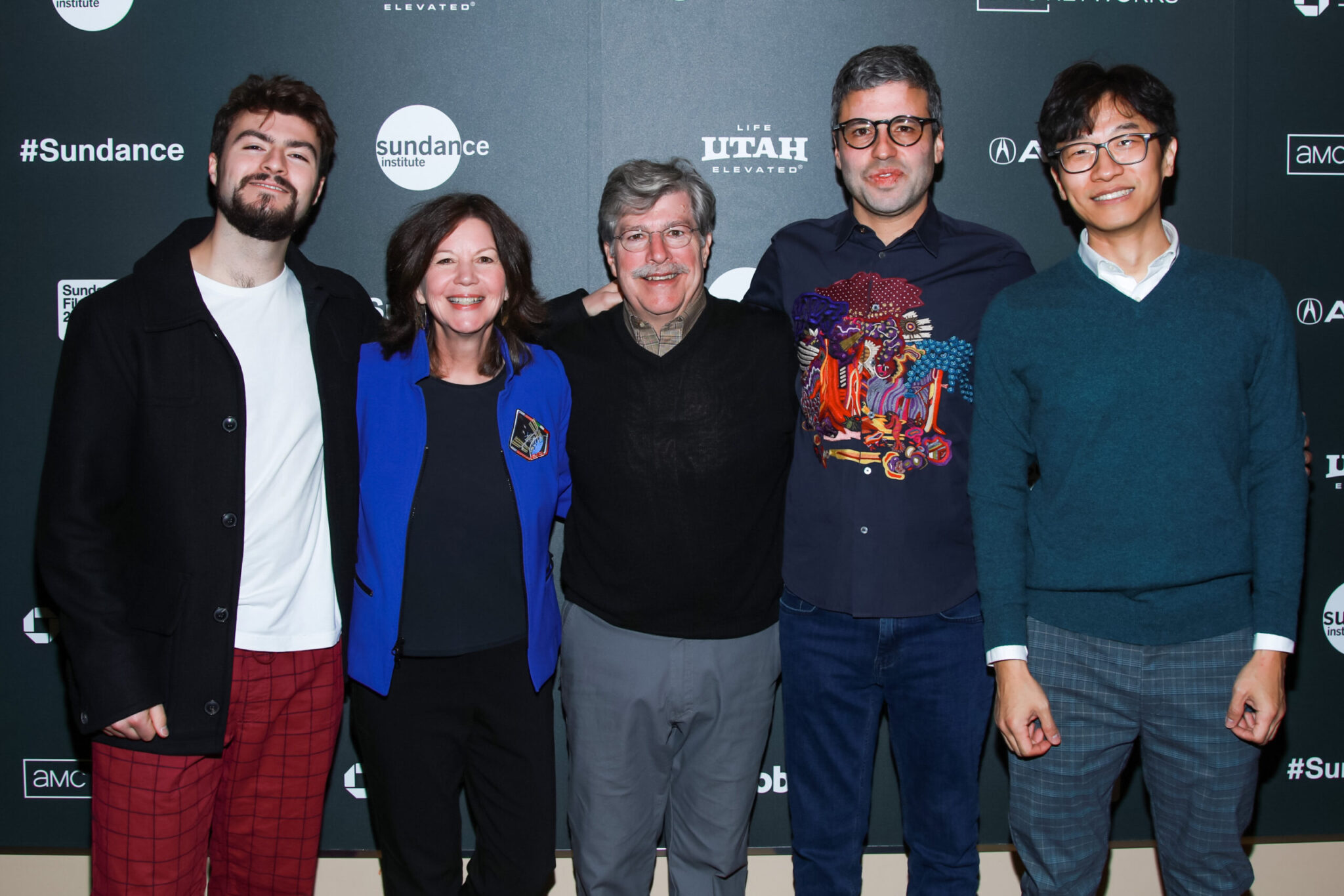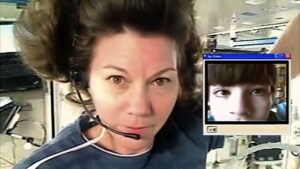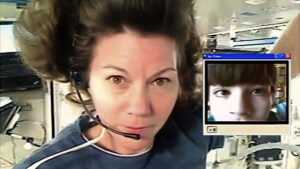PARK CITY, UTAH – JANUARY 19: Film Subjects Jamey Simpson, Cady Coleman, Josh Simpson, Film Maker Ido Mizrahy and Film Subject Sukjin Han attend the 2023 Sundance Film Festival “The Longest Goodbye” Premiere at Egyptian Theatre on January 19, 2023 in Park City, Utah. (Photo by Steven Simione/Getty Images)
By Vanessa Zimmer and Katie Small
The biggest obstacle to a mission to Mars may not be the fireball at launch or sustaining life over the long haul — nothing to do with engineering or technology at all. It likely will have to do with, as cultural anthropologist Jack Stuster puts it in The Longest Goodbye, “soft, squishy humans.”
The Mars mission would take three years — three years out of the life of a flesh-and-blood body, a person with immediate and extended family members, perhaps spouses, even children. Our bodies weren’t made for space, the lack of gravity, the atrophy of muscles, and the like. And especially not for the social deprivation, says NASA psychologist Al Holland in the film.
The Longest Goodbye, which premiered on Thursday, January 19 in the World Documentary Competition at the 2023 Sundance Film Festival, examines the preparations that NASA and other space agencies have undertaken to mitigate the psychological difficulties that astronauts face during long separations from family and society.
Regular communication with families helps, says Holland. The film explores the effects of prolonged separation on astronaut Cady Coleman and her family during her six-month mission to the International Space Station (ISS) in 2010. Footage of Coleman’s nightly video chats with her elementary-age son Jamie — which included a flute duet and reading stories to each other — kept the family emotionally grounded while she was away.
Audiences were thrilled to discover that Coleman and Jamie were present for the in-person premiere and the Q&A that followed. When asked, “Why bother going to Mars at all?” Coleman laughed and replied, “Why not!” before emphasizing the passion and curiosity that motivates her work.
“[On the ISS], you wake up every day and you feel that every single thing you do is important … so much of the work we were doing cannot be done down here on Earth, and it has so many implications for understanding how [elements] behave in space,” she explained. She smiled before adding, “It’s a very human thing to want to see what else there is. It’s why people like you come to things like this film premiere — exploration happens in different ways.”
Since 2017, more than 30,000 individuals have applied to the Artemis Program that will send humans to Mars. The scientists and engineers will ensure the astronauts have the best technology, and that they won’t be lost in space. Holland and his colleagues endeavor to guarantee that they won’t be “lost on Earth” when they return.










